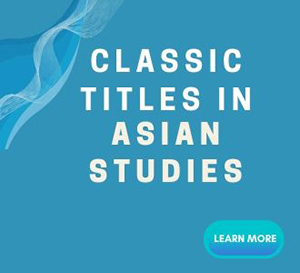This book constructs a new theoretical framework for understanding contemporary Chinese agricultural production organizations from the perspective of promoting farmers' realization of "substantial freedom" and "feasible ability". The new theoretical framework deepens and expands the theory of agricultural modernization and production organizations. The book discusses the "multi-symbiosis" pattern of agricultural production organizations in contemporary China from macro and micro economics perspectives. Based on the peasant household economy, this multi-symbiosis organizational structure co-exists and interweaves with various forms of economic organizations. The book points out that this multi-symbiosis organizational structure is the result of free choice of the majority of farmers since the "reform" and "opening-up"; in turn, it also provides a broader organizational and institutional space for farmers' diversified choices. The book predicts that China's agricultural production organization networking will gradually move towards networking based on diversification and also form networked organization groups.
Sample Chapter(s)
Chapter 1: Introduction
Contents:
- About the Aurhor
- About the Translators
- Disclaimer
- Introduction
- The Basic Analytical Framework: Freedom and Organization
- The Historical Context and Inherent Logic of the Transition of Agricultural Production Organizations in Contemporary China: Interpretation Based on Peasants' Freedom
- Pluralism and Symbiosis: The Basic Framework of Agricultural Production Organizations in Contemporary China
- Transforming Small Farming: The Key to the Modernization of Agricultural Production Organizations in Contemporary China
- Who Organizes Peasant Cooperative Organizations and Whom to Organize?
- Networking in the Modernization of Agricultural Production Organizations in Contemporary China
- Afterword
- References
- Index
Readership: Academics, policymakers, professionals, undergraduate and graduate students interested in the studies of agricultural organizations in China and China's rural economy.
About the Author
CAO Yang is a professor and doctoral supervisor at the School of Economics and Business Administration, Central China Normal University. He has been a visiting scholar at the University of Queensland and the University of Cambridge. He is a member of the Academic Committee, Central China Normal University and director of the Academic Committee of School of Economics and Business Administration.
He has published five monographs in Chinese, including The Choice of History — The Development History of Market Economy, Study on Contemporary Chinese Rural Microeconomic Organization Form, etc. In addition, he has published five English papers in international journals such as Asian Economic Journal, and more than 70 papers in Chinese in domestic journals such as Economist, Economic Perspectives and Chinese Rural Economy.
About the Translators
DONG Ming was a professor of translation at Zhejiang Gongshang University before she retired in 2020. She graduated from Shanghai International Studies University with a Master's degree in English and American Literature in 1989. She has authored three translation monographs Spatial-Temporal Translation Studies, A Philosophical Perspective of Translation Studies and Translation: Creative Treason, and tens of papers on translation theories, language and culture, English teaching, etc. She has translated solely or collaboratively Learning Revolution in the Information Age — Using Hanghzou as an Example, Wen Jiabao's Journals of Geology, A Bright Shared Future, Hangzhou, A Glimpse of Hangzhou, Remembrances of the West Lake, 100 Heroes of China's Bamboo Industry, Search for the South Song Empire and History of Xiling Seal Engravers' Society.
LI Xue is a translator and English teacher. Li Xue graduated from Shanghai International Studies University (SISU) with a Master's degree in English Language and Literature in 2006. Since then she has been teaching courses to undergraduates in Zhejiang Gongshang University (ZJGSU). As an outstanding and aspirational teacher with high personal standards, she has won teaching awards in the "ZJGSU Creative Teaching Competition" in 2017 and the third prize in the "National Micro-course Competition" in 2019.
She has always dedicated her academic focus to translation theories and practice, published over 20 papers and translated works including The Sword of King Arthur (2005), Super Sad True Love Story (2012) and The Jewels in China's Crown (2018). She has also presided over many academic projects, including On the Translation-introduction of Hongloumeng from the Perspective of Paratext (2019) and On the Creative Treason of Translators (2011).



